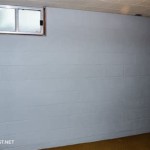Interior Design Certification in Florida: A Comprehensive Guide
The field of interior design in Florida is a dynamic and competitive landscape. As such, aspiring and practicing interior designers often seek avenues to demonstrate their competence, knowledge, and commitment to professional standards. While Florida does not mandate state licensure for all interior designers, achieving certification through recognized organizations offers significant advantages in terms of career advancement, client acquisition, and professional credibility. This article explores the landscape of interior design certification in Florida, outlining the benefits, pathways, and requirements involved.
It's important to first clarify the distinction between licensure and certification. Licensure, typically mandated by a state government, grants legal permission to practice a profession. Certification, on the other hand, is usually a voluntary process offered by professional organizations that validates an individual's expertise and knowledge. While not always legally required, certification can significantly enhance a designer's reputation and marketability.
In Florida, interior designers can practice without a state-issued license as long as they do not perform services that would legally require an architecture or engineering license. This means that many interior design tasks, such as space planning, material selection, and furniture arrangement, can be performed without needing to be a licensed professional. However, using the title "Registered Interior Designer" or offering services that encroach on architectural or engineering practice may require specific credentials and compliance with state laws.
Given this context, interior design certification becomes a valuable tool for professionals seeking to distinguish themselves and build trust with clients. Several organizations offer reputable certification programs relevant to interior designers in Florida. These programs typically involve rigorous testing and require meeting specific educational and experience prerequisites. The most widely recognized certification is offered by the Council for Interior Design Qualification (CIDQ).
The Importance of CIDQ Certification (NCIDQ Exam)
The National Council for Interior Design Qualification (NCIDQ) is the leading organization offering certification for interior designers in North America. The NCIDQ Exam is a standardized test that assesses competency in core areas of interior design practice. Achieving NCIDQ certification signifies that a designer has met rigorous standards of education, experience, and examination, demonstrating a commitment to professionalism and ethical conduct.
The NCIDQ Exam is comprised of three sections: the Interior Design Fundamentals Exam (IDFX), the Interior Design Professional Exam (IDPX), and the Practicum Exam (PRAC). The IDFX covers foundational knowledge in design principles, building systems, and codes. The IDPX focuses on applying this knowledge to real-world scenarios and making professional judgments. The PRAC exam is a performance-based assessment that evaluates the designer's ability to solve design problems and communicate design solutions effectively.
Passing the NCIDQ Exam and obtaining certification offers several advantages for interior designers in Florida. It enhances credibility with clients, demonstrating a commitment to professional standards and ongoing competence. It can also open doors to new career opportunities, as many firms and organizations prefer or require NCIDQ certification for certain positions. Furthermore, it can contribute to higher earning potential, as certified designers are often able to command higher fees for their services.
Furthermore, NCIDQ certification is often a stepping stone toward reciprocity with other states that have interior design regulations. This allows certified designers to practice in multiple jurisdictions without having to meet additional licensing requirements in each state. This is particularly beneficial for designers who work on projects across state lines or who plan to relocate to another state in the future.
The specific requirements for the NCIDQ Exam include a combination of education and experience. The amount of required experience varies depending on the level of education. Generally, a bachelor's degree in interior design from a CIDA-accredited program requires the least amount of experience, while an associate's degree or a degree in a related field requires more. Candidates must also demonstrate proficiency across a range of design skills and knowledge areas, including space planning, building codes, accessibility standards, and sustainable design practices.
Alternative Certifications and Specializations
While NCIDQ certification is widely recognized and valued, other certifications and specializations can also be beneficial for interior designers in Florida. These credentials can help designers differentiate themselves and demonstrate expertise in specific areas of design practice, such as sustainable design, healthcare design, or kitchen and bath design.
The Leadership in Energy and Environmental Design (LEED) credential, offered by the U.S. Green Building Council (USGBC), is a widely recognized certification for professionals who demonstrate expertise in sustainable building practices. Interior designers who specialize in sustainable design can benefit from obtaining LEED certification, as it demonstrates their knowledge of green building principles and their ability to design spaces that are environmentally responsible.
The Certified Healthcare Interior Designer (CHID) credential, offered by the American Academy of Healthcare Interior Designers (AAHID), is a specialized certification for designers who focus on healthcare environments. This certification demonstrates expertise in the unique design considerations of healthcare facilities, such as infection control, patient safety, and accessibility standards. Interior designers who work in hospitals, clinics, and other healthcare settings can benefit from obtaining CHID certification.
For designers specializing in residential design, certifications offered by the National Kitchen and Bath Association (NKBA) can be valuable. These certifications, such as Certified Kitchen Designer (CKD) and Certified Bath Designer (CBD), demonstrate expertise in the design and construction of kitchens and bathrooms. They require passing examinations and meeting specific experience requirements, demonstrating a commitment to professional standards in these specialized areas.
Besides these formal certifications, various professional organizations offer specialist credentials or designations that can enhance an interior designer's profile. These designations are often focused on specific areas of expertise, such as lighting design, furniture design, or universal design. While not always as widely recognized as NCIDQ or LEED, these credentials can still demonstrate a designer's specialized knowledge and commitment to ongoing professional development.
Navigating the Certification Process in Florida
The process of obtaining interior design certification in Florida can be complex, but understanding the steps involved can help aspiring and practicing designers navigate the process effectively. The first step is to research the different certification options and determine which credentials are most relevant to their career goals and specialization. It is essential to consider the requirements for each certification, including education, experience, and examination prerequisites.
For those pursuing NCIDQ certification, it is crucial to plan in advance and prepare thoroughly for the exam. This includes reviewing the NCIDQ exam blueprint, studying relevant materials, and taking practice exams. Many resources are available to help candidates prepare for the NCIDQ exam, including study guides, online courses, and workshops. Joining a study group with other aspiring designers can also be beneficial.
Candidates must also carefully document their work experience to ensure that it meets the NCIDQ's requirements. The NCIDQ requires candidates to gain experience under the supervision of a qualified interior designer. It is important to maintain detailed records of projects, including project descriptions, time logs, and supervisor evaluations. This documentation will be submitted to the NCIDQ as part of the application process.
For alternative certifications and specializations, the process may vary depending on the organization offering the credential. However, it typically involves meeting specific educational and experience requirements, passing an examination, and paying a certification fee. It is important to carefully review the requirements for each certification and follow the application instructions provided by the certifying organization.
Once certified, interior designers must maintain their certification by meeting continuing education requirements. These requirements ensure that designers stay up-to-date on the latest trends, technologies, and best practices in the field. Continuing education can be obtained through attending conferences, workshops, online courses, and other professional development activities.
Ultimately, interior design certification in Florida is a valuable investment for professionals seeking to enhance their careers, build credibility with clients, and demonstrate a commitment to excellence. By carefully considering the different certification options, preparing thoroughly for the required examinations, and maintaining their certifications through ongoing professional development, interior designers in Florida can position themselves for success in the competitive field of interior design.

Certified Residential Interior Designer From University Of Central Florida

Licenses Architect1 Com

How To Get The Professional Interior Design Certification Foyr

Victory For Interior Design In Florida Daring By

Tim Devine Received Florida License

Viscontidesigngroup Llc Interior Design Firm Jupiter Fl Residential Hospitality Per Project Hourly E Stuart Palm Beach Gardens City Florida Keys Caribbean Bahamas Maui Hawaii

The Difference Between A Licensed Interior Designer Decorator Collins Dupont Design Group

Designer Society Of America Interior Design Education Certification Designers Resources

Certification Program Cid International

Interior Design Basics Broward College
Related Posts








